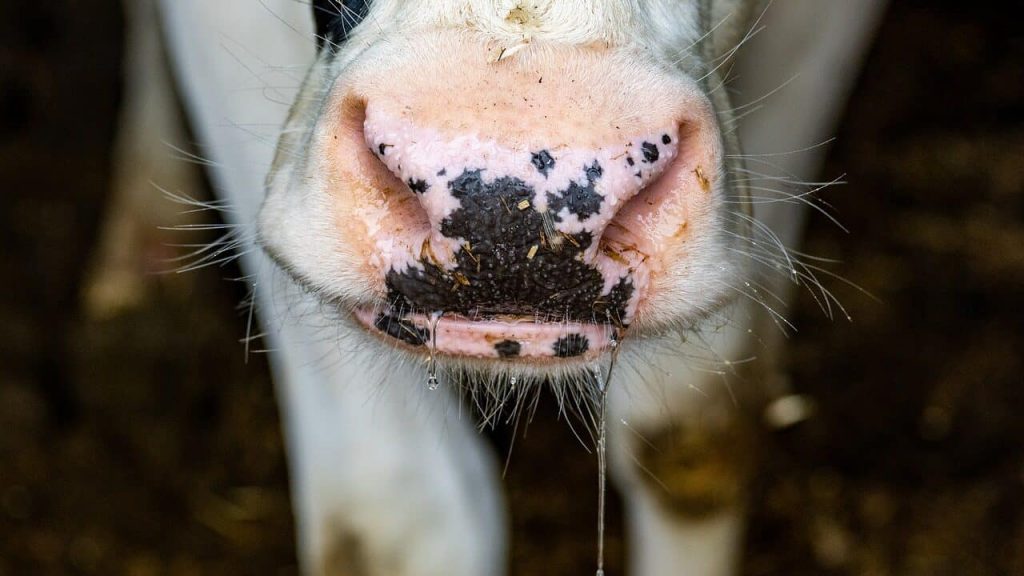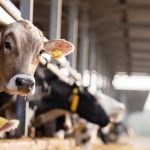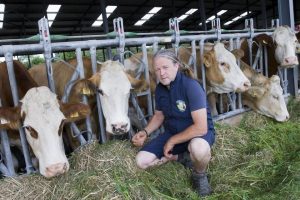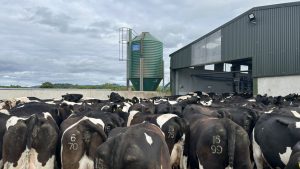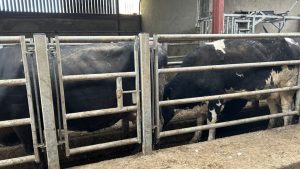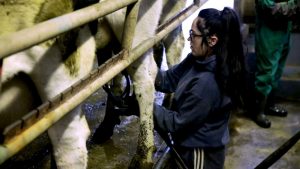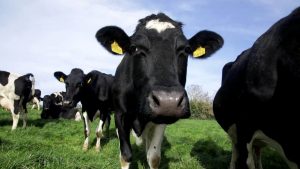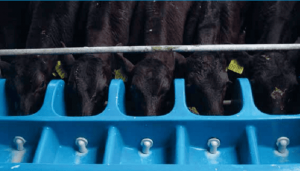
A recent dairy conference in Ballynahinch highlighted labour issues on Northern Irish dairy farms relating to working hours.
Organised by the College of Agriculture, Food and Rural Enterprise (CAFRE), dairy adviser, Anna Truesdale, said Northern Ireland’s dairy farms must become “somewhere where people want to work” to overcome labour issues in the sector.
A recent CAFRE labour study revealed that the average dairy farmer is working 66 hours/week and that some work upwards of 80 hours/week.
In terms of sustainability and attracting the next generation into the industry, Truesdale said the average weekly hours across the rest of the UK labour market was just over 36 hours/week.
“If dairy farming is to be an attractive and competitive industry within the labour market, we need to make our farms somewhere where people want to work,” she said.
At the conference, over 80% of attendees thought they did “too much work on the farm” and a number of those in attendance had not reported a single day away from the farm in the last three months.
Truesdale urged participants to review their own farms and identify the most time-consuming tasks.
Suggestions included the use of heat and health monitors, cubicle bedders and milk taxis as well as reviewing the efficiency of infrastructure.
Truesdale suggested farmers take “a cows-eye view” in terms of analysing cow flow through sheds as well as proposing a “quick-fix” – that all gates on the farm should swing and as many jobs as possible should be made able to be done by just one person.
Attitude and motivation
At the conference, Nollaig Heffernan of Heffernan Consultancy Ltd. delivered a detailed discussion focused on motivating workers.
She said it was important for dairy farms to have a “why” – that is the “why” behind their business and business model.
She urged farmers not to diminish the impact that investment in people can have on their bottom line.
Heffernan said a farmer’s attitude towards people, such as delivery drivers, salespeople, and vets, as well as employees, is a reflection on their business.
In order to be a “people’s choice” employer, they must remain fair, gracious and kind to all, she said.
Putting theory into practice
Co-founder of Evolution Farming Ltd. Tom Rawson also delivered a presentation at the conference.
He summarised the growth of Evolution Farming from a 50-cow tenancy in West Yorkshire to managing 3800 cows over nine different units around England.
Rawson explained how, at busy times, the business could be employing upwards on 80 full and part-time staff.
“A simple, forage-based system, with fast, efficient parlours and good grazing infrastructure,” he said.
He outlined how half of the farms in the business operate a spring-calving block and the other half in autumn.
“The less arduous a task, the better,” he said.
Investing in yourself
The conference was closed with Dr Rebecca’s Orr’s presentation on the impacts of sleep, stress, and sustenance on a dairy farmer’s body.
Orr suggested that stress wasn’t necessarily a bad thing and that “a little stress is what gets us up in the morning”.
However, she highlighted the importance of being able to cope with that stress and being able to ground yourself again after a stressful situation.
She outlined how, like cattle, dairy farmers are impacted by stress and poor nutrition, reporting that fertility, immunity and memory are all heavily affected by a lack of sleep, continuous excessive stress and a poor diet.
She urged farmers to “know their numbers” – like how they benchmark their businesses, they need to benchmark their own statistics.
Orr pointed to a recent study which found that male farmers are 74% more likely to have a heart attack or stroke and how, throughout the UK and Ireland, farmers featured highly when ranking socio-economic groups in terms of mortality.
She finished by reminding farmers that, just like checking the pressure on their tractor tyres, they need to check their blood pressure regularly and make changes as necessary.
She reminded them to set long-term goals with their health, just like in their businesses, and take active steps to reach those goals.
